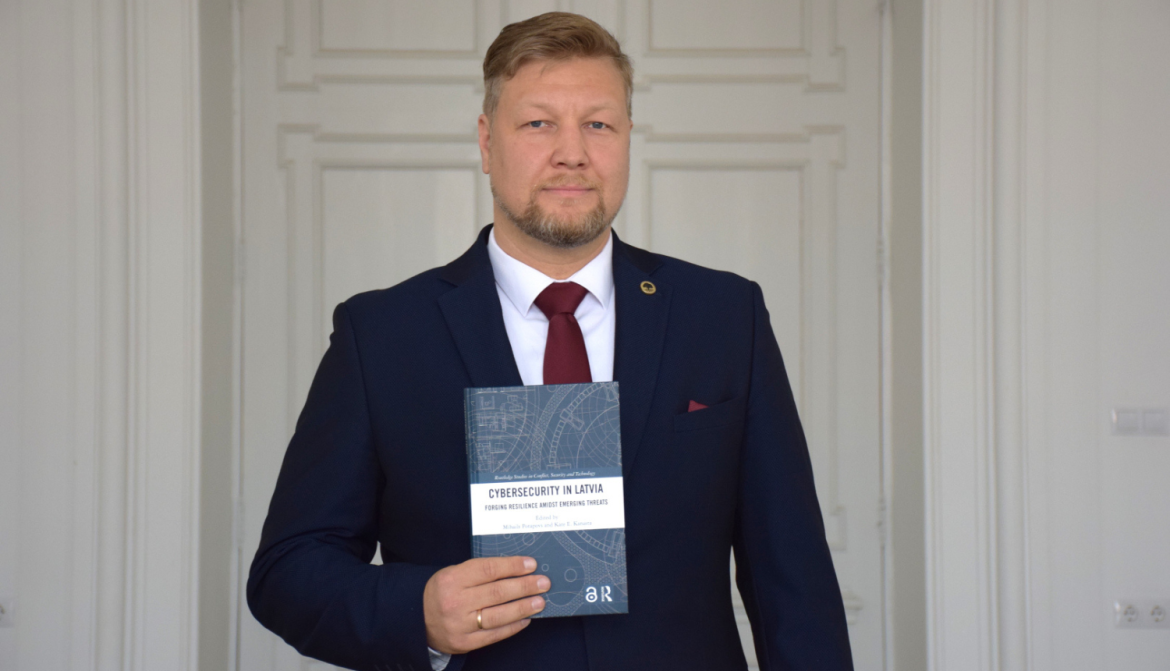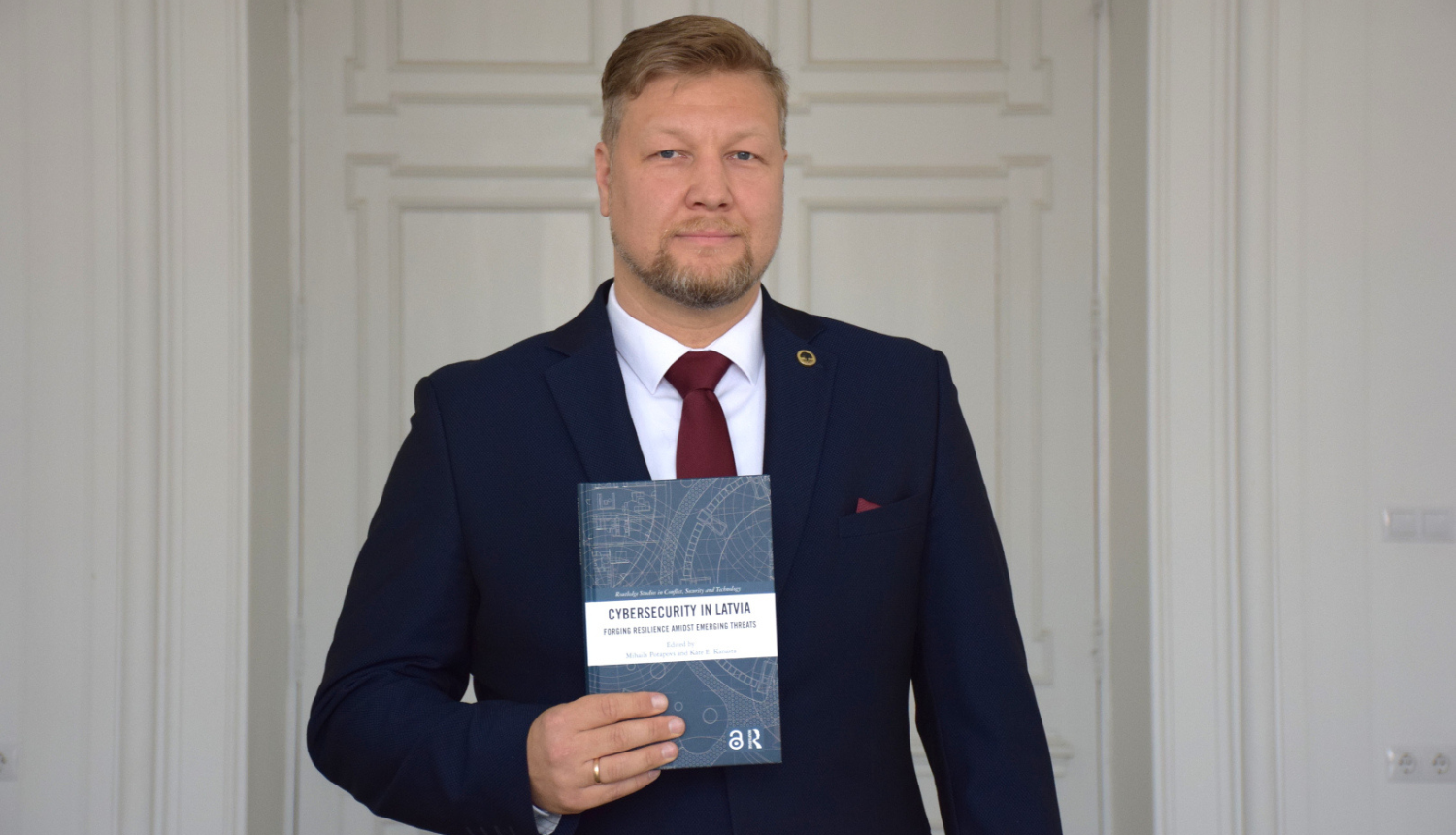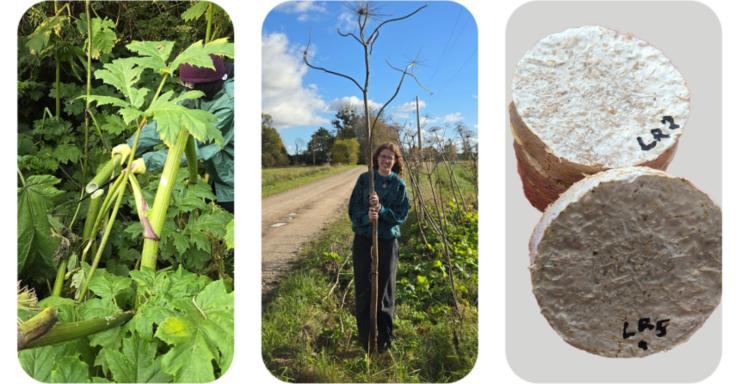The publishing house Routledge has released a collective monograph titled Cybersecurity in Latvia: Forging Resilience amidst Emerging Threats / Kiberdrošība Latvijā: Noturības stiprināšana jauno apdraudējumu apstākļos, to which Mārtiņš Štāls - researcher and lecturer at the Institute of Computer Systems and Data Science, Faculty of Engineering and Information Technology (IITF), Latvia University of Life Sciences and Technologies (LBTU) - contributed.

This monograph is the most extensive study to date and the first scientific book dedicated to cybersecurity in Latvia. It was developed in collaboration with more than 20 researchers and experts from Latvia, including LBTU, and abroad. The publication examines Latvia’s cybersecurity ecosystem, its primary challenges, and future development directions, drawing on perspectives from both the natural sciences and social sciences.
LBTU IITF researcher Mārtiņš Štāls, together with colleagues Heinrihs K. Skrodelis and Andrejs Romanovs, authored the ninth chapter of the book, which focuses on cybersecurity transformation processes in Latvia.
“Our observations were based on five case studies. One of the key trends we identified was the economically driven centralisation of ICT resources, which in some cases has already exhausted its positive potential and may create new cybersecurity risks. The chapter also analyses the risks associated with the chosen organisational model, which must be taken into account when adapting to new cybersecurity conditions,” explains M. Štāls, co-author of the monograph.
The chapter Cybersecurity Transformation in Latvia / Kiberdrošības transformācija Latvijā examines the importance of cybersecurity in the digital age, with a particular focus on Latvia’s situation. It provides an in-depth analysis of current cybersecurity challenges and the measures being implemented to mitigate common cyber threats. The chapter also reviews Latvia’s legal and institutional frameworks, emphasising the significance of regulations such as the EU Cybersecurity Act and the Latvian National Cybersecurity Law, as well as the establishment of institutions like the National Cybersecurity Centre.
The study also analyses the trend toward cybersecurity centralisation, assessing both its benefits and risks to understand its applicability better. To offer practical insights, the chapter includes five case studies of major Latvian organisations, highlighting their unique cybersecurity practices, challenges, and development trends. These case studies are examined within the broader context of global cybersecurity events and trends, offering a valuable perspective on both the international and Latvian cybersecurity landscape.
The monograph is available for all interested readers here.


